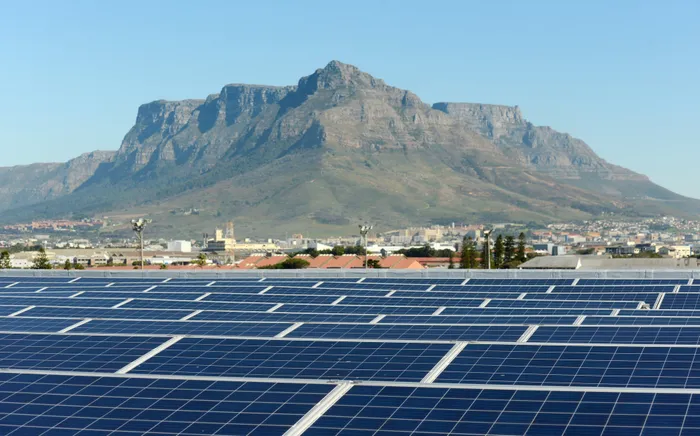Warning signs emerge as ITAC reviews tariffs for renewable energy sector
TARIFFS

In the past year, R6.3 billion-worth of solar panels were imported.
Image: Armand Hough/Independent Newspapers
The renewable energy sector in South Africa faces potential upheaval as the International Trade Administration Commission (ITAC) reviews 82 tariff codes, a move which has been flagged by industry experts as having more penalties than incentives.
As various stakeholders await the final review, expected by the end of the year, the implications of the proposed changes could reshape the landscape for manufacturers and importers in the renewable energy value chain.
XA Global Trade Advisors CEO Donald Mackay on Friday the review looked to increase tariffs on 82 tariff codes in the renewable energy value chain, which was a really big deal.
"I am not proposing for a second ITAC. It will automatically increase tariffs on everything. But if they were to increase it to the rate they want to take it up to, it would take the total duty liability from R370 million to about R7.2 billion," Mackay said at a webinar for industry to discuss the ongoing review.
"That's a healthy increase in tariffs. But again to be clear, I don't think it's likely all of this will go up but the problem is we don't know where it will go up."
Mackay said the review was in four stages. The first focuses on tariff adjustments aimed at reducing import duties and removing rebates for solar panels. The second stage addresses localisation, which seeks to enhance local content in solar and storage components, up from the current percentages of 45% for solar PV to 50% by 2030, and from 20% to 60% for storage. To enforce this, ITAC is considering export controls on essential minerals, including lithium, manganese, and vanadium, to drive local beneficiation.
The third element of the review concerns subsidies, which are anticipated to facilitate additional income tax deductions for businesses engaged in the renewable energy sector. The proposed transformation fund aims to uplift black South Africans, particularly women, within this industry, financed by a levy of 1.5% on project construction costs and an additional 2% on after-tax profits. While this bold initiative aims to encourage inclusivity, it also introduces a complex layer of financial obligations for companies involved.
Mackay pointed out the unusual duality in the proposal: while companies may receive extra tax deductions, they are simultaneously faced with increased levies for contributing to the renewable energy market. The intricacies of these plans—still lacking complete clarity—set the stage for a challenging few years ahead, as the industry adapts to a rapidly changing regulatory environment.
"It's the plan to 2030, we are in the first stage of it and we don't have more detail on this," Mackay said.
Over the past year, the country imported R6.3bn worth of solar panels, of which a significant portion came from the European Union, thus escaping import duties due to existing rebates.
Notably, R610m in duties could have been collected had these solar panels been subject to tariffs, but the rebate salvaged R344m while the utilisation rate remained at a mere 55%. A troubling concentration of imports was also noted, with just ten importers responsible for over half of the potential tariff increases.
With proposals to eliminate the rebate in favour of boosting local solar panel production, it remains to be seen how the industry will respond. The balancing act between localisation, tariffs, and incentives continues to evolve, possibly redefining South Africa’s renewable energy future.
BUSINESS REPORT